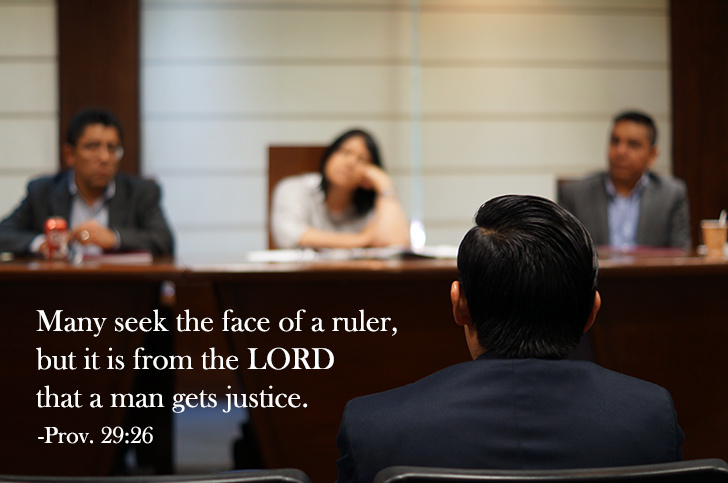
“But go and learn what this means: ‘I desire mercy and not sacrifice.’ For I did not come to call the righteous, but sinners, to repentance.” Matthew 9:13 NKJV
When someone shows us mercy, they are not giving us the punishment that we deserve. Jesus models this action for us in multiple ways. The importance of the exhibition of mercy by Christians is displayed throughout the New Testament, and there are many ways for us to show mercy daily.
Throughout the Gospels there are numerous examples of the mercy of Jesus. One of the main ways we see this is through the healing work that He does. In Matthew 17:14-18, a man begs for Jesus to have mercy on his son, who is an epileptic. “Jesus rebuked the demon, and it came out of him that very hour,” (Matt. 17:18, NKJV). Another time, Jesus demonstrated the need for mercy in the parable of the Good Samaritan, who showed mercy to an injured traveler by taking care of him. Although Jesus often demonstrates mercy through His actions toward people and his teachings, He also showed mercy by fulfilling the word of God. For example, the mercy of God was shown through the fulfillment of Isaiah 53:4-6, which says:
Surely He has borne our griefs and carried our sorrows; yet we esteemed Him stricken, smitten by God, and afflicted. But He was wounded for our transgressions, He was crushed for our iniquities; the chastisement for our peace was upon Him, and by His stripes we are healed. All like sheep have gone astray; we have turned, everyone, to his own way; and the LORD has laid on Him the iniquity of all. (Isaiah 53:4-6, NKJV)
This passage also shows God’s mercy toward us through the gift of salvation. On the cross, Jesus took the punishment that we deserved, so that whoever believes in Him will not receive the punishment that they deserve, but rather, will receive eternal life.
Because we have received the mercy of God, He expects us to show mercy. Jesus makes this clear in a parable found in Matthew 18:22-35. This parable tells of a servant whose master forgave him a huge debt, one that the servant would never have been able to repay. The servant then finds another servant who owes him a miniscule amount of money and demanded he pay up. The first servant was unwilling to be patient with the second servant or show him mercy like his master had done for him, instead he sent the man to jail. Because of this, when the master found out, he sent the evil servant to jail to be tortured until the great debt he owed the master was paid. Jesus ends this parable by declaring that this is what the Father will do to us if we do not show mercy and forgive others.
Jesus also makes clear the expectation for us to show mercy when He is teaching the Lord’s Prayer. He states that “if you forgive men their trespasses, your heavenly Father will also forgive you. But if you do not forgive men their trespasses, neither will your Father forgive your trespasses,” (Matt. 6:14-15, NKJV).
While God’s expectation for us to show mercy is a great reason to do so, we also are blessed when we show mercy. I recently found out that the word blessed means worthy of association with God. So, when Jesus is preaching the sermon on the mount and declares “[b]lessed are the merciful, for they shall obtain mercy,” (Matt. 5:7), He is telling us that when we show mercy we are worthy of association with God.
Because the act of mercy grants us association with God, showing mercy to others brings people in contact with God. One of the main ways we do this is through forgiveness. When we forgive others, we are showing them mercy just like God has shown it toward us. Many times forgiveness and the giving of money are they only ways people think they can show mercy. However, as pointed out previously, Jesus showed mercy in a variety of ways, and we can too.
Another way we can show mercy is to be kind to people who have treated us poorly. In doing so, we are not treating them how they treated us, thereby, not giving them what, at least in our minds, they deserve. We can also show mercy by reaching out to others. Sometimes, we do not do this because of how the other person has made us feel, but by simply giving them a word of encouragement, we show them mercy.
All of these acts show people that we love them, even though they may not deserve our love. However, we realize that, like those who do not deserve our love, we also did not deserve the love of God, but He gave it to us anyway.
Jesus modeled what mercy looked like so that we could follow in His footsteps and show His mercy to others. Therefore, we should work, in our daily lives, to show the mercy of God to others, thereby fulfilling the great commission and bringing people to Christ. Even small acts of mercy can have a profound impact on the lives of those around us.
To live, grow and learn in a Christ-centered academic community that places eternal importance on the lessons of mercy taught by God’s one and only true Son, Jesus, contact Geneva College Admissions at admissions@geneva.edu or 800-847-8255.
Kelsey Gerhard ‘23
-----
Photo by Tom Pumford on Unsplash
Opinions expressed in the Geneva Blog are those of its contributors and do not necessarily represent the opinions or official position of the College. The Geneva Blog is a place for faculty and contributing writers to express points of view, academic insights, and contribute to national conversations to spark thought, conversation, and the pursuit of truth, in line with our philosophy as a Christian, liberal arts institution.
Feb 22, 2021Biblical WisdomRelated Blog Posts
Request Information
Learn more about Geneva College.
Have questions? Call us at 724-847-6505.










 Online Course Login
Online Course Login